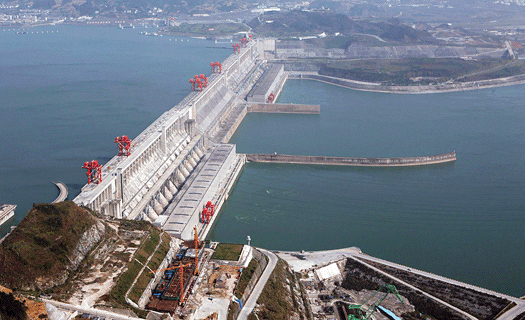China’s Largest Lake Goes Dry
Feb. 3, 2012
China’s largest freshwater lake, Poyang, has gone dry, the state news service, Xinhua, announced this week. The normally 1,350-square-mile (3,500-square-kilometer) lake is now a dried-out plain that stretches as far as the eye can see. According to the news agency, the situation is the result of drought–the worst in 60 years–in the area around Poyang and the rivers that feed into the lake. While poor weather conditions are partly responsible, conservationists point out the role played by the Three Gorges Dam. The colossal dam and reservoir are 310 miles (500 kilometers) upstream from the lake.
“Every year, when the Three Gorges reservoir stores water–to power the dam’s [electric power-generating] turbines during the winter–the flow rate in the Yangtze [River] drops. This in turn increases the rate at which the level of Poyang lake falls, and the period of low water comes sooner,” states Ye Xuchun, a researcher at China’s Southwest University. Although the Chinese government has yet to acknowledge this cause and effect, the government did admit in May 2011 that the Three Gorges, which is the largest dam on the planet, has produced “problems that need to be solved very urgently.”

Three Gorges Dam, on the Yangtze River in Hubei Province, is the world's largest dam. It is designed to control flooding and generate hydroelectric power. © Reuters/Landov
Dai Nianhua, deputy head of the Lake Poyang Research Center in Nanchang, the provincial capital, has pointed out that the dried up lake seriously affects the region’s balance of nature. When the level in the lake is too low, the fish die. This leaves no food for migrating birds that normally feed at Poyang.
The economic consequences are also serious. Fishers are unable to make a living, and all shipping across the normally busy lake has come to a standstill.
Additional World Book articles
- Back in Time 1996 (Environmental pollution)
- Back in Time 2003 (China)
- Back in Time 2003 (Environmental pollution)


